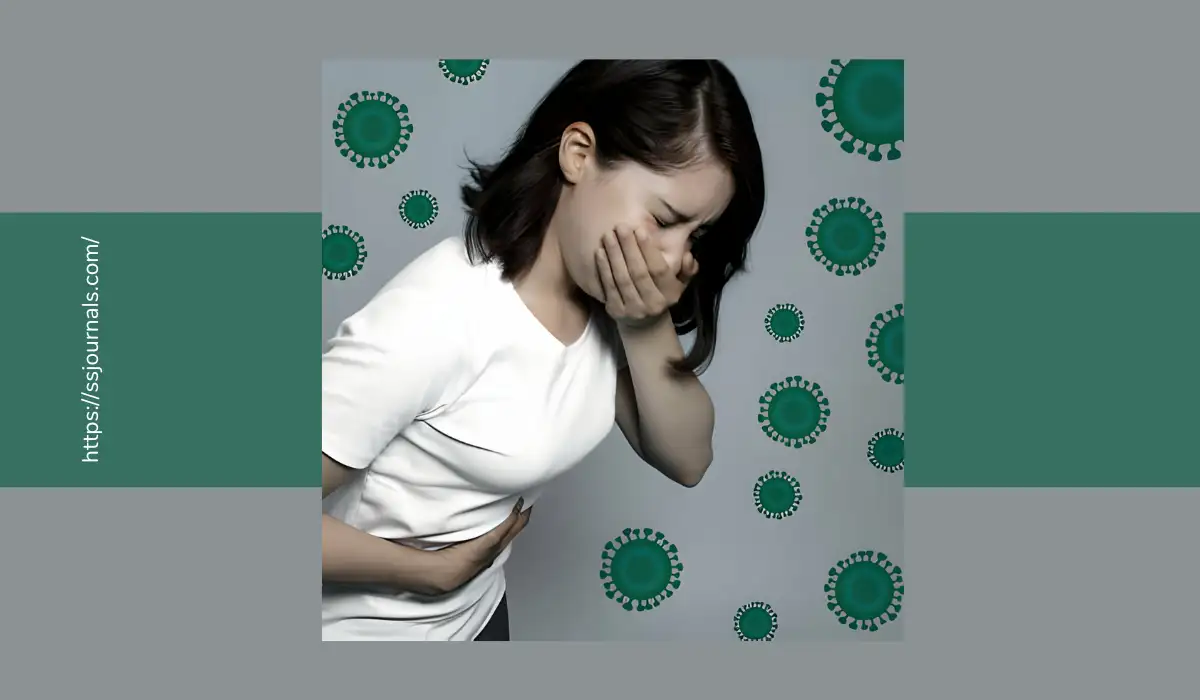Norovirus, also known as the stomach flu, causes inflammation of the stomach and intestines. Norovirus is very contagious and causes about 20 million cases of acute gastroenteritis each year in the United States.
Understanding what causes norovirus and how it spreads can help prevent infection. Norovirus symptoms usually start about 1 to 2 days after exposure but can appear as early as 10 hours after exposure.
Symptoms typically last 1 to 3 days. While most healthy people recover without treatment, norovirus infection can lead to dehydration, especially in the elderly, infants, and those with other health conditions.
This article provides an overview of norovirus, typical norovirus symptoms, and causes, how long norovirus lasts, and how to treat and prevent norovirus infection. Knowing how to treat norovirus properly can help relieve symptoms and prevent complications.
What Is Norovirus?

Norovirus is a highly contagious virus that causes vomiting and diarrhea in diseased individuals. Nearly one in five people in the United States come down with norovirus illness each year.
Norovirus is sometimes called by other names, such as food poisoning and stomach flu. However, norovirus disease doesn’t have any connection to the flu, caused by the influenza virus. Understanding how to treat norovirus involves knowing what causes it and how it spreads.
Symptoms & Causes Of Norovirus
The most common symptoms of norovirus include nausea, vomiting, diarrhea, stomach pain, fever, headache, and body aches. Symptoms usually start about 1 to 2 days after being exposed to norovirus but can appear as early as 10 hours after exposure.
People infected by norovirus illness usually get better within 1 to 3 days. Knowing how to treat norovirus symptoms can help relieve discomfort.
What causes norovirus?
Norovirus spreads easily from person to person. You can get norovirus from having direct contact with an infected person, consuming contaminated food or water, or touching contaminated surfaces and then putting your fingers in your mouth.
The virus spreads very quickly and easily in closed places like daycare centers, nursing homes, schools, and cruise ships.
Individuals usually develop symptoms 12 to 48 hours after being exposed to the virus. Most adults will be sick for 1 to 3 days. Most children will be sick for 1 to 2 days. Some people may be contagious for up to 2 weeks after recovering from norovirus illness.
Is norovirus contagious?
Norovirus is very contagious and spreads easily from person to person. Both stool and vomit contain norovirus particles and can infect others. An accident exposure to such particles is more than enough to cause an infection. This can happen by:
- Having direct contact with an infected person
- Consuming food or drink that is contaminated with norovirus
- Touching surfaces or objects exposed to norovirus then putting your hand or fingers in your mouth
- Sharing food, drinks, utensils, towels, bedding, or toothbrushes used by a person with norovirus
Norovirus particles can spread through the air and settle on surfaces, resulting in further contamination. It takes just a small amount of norovirus particles to make other people sick.
How to Treat Norovirus?
Over-the-counter medications should not be given to children under 2 years old without first consulting a pediatrician. Seek medical care if symptoms don’t improve in 24 hours.
Signs of dehydration in infants can include decreased urination, dry mouth, and throat, sticky saliva, lack of tears when crying, sunken abdomen, soft spot on their head, listlessness, or irritability.
Signs of dehydration in children over 1-year-old and adults can include extreme thirst, heavy breathing, infrequent urination, dark-colored urine, dry skin, fatigue, and dizziness when standing or sitting up. Severe dehydration requires urgent medical treatment with fluids given intravenously.
How Long Does Norovirus Last?
Norovirus illness usually lasts about 1 to 3 days after symptoms start. Most healthy people recover without treatment. However, the virus remains in stool for 2 weeks or more after recovering.
The virus continues to spread to others during this time. Some people may have norovirus particles in their stool for as long as 2 months after getting infected.
Elderly and immunocompromised people can become severely dehydrated when they have norovirus and may need to be hospitalized.
Management and Treatment Of Norovirus
Norovirus doesn’t have any specific medication or vaccine. Treatment focuses on managing symptoms and preventing complications by replacing lost fluids and electrolytes. Learning how to treat norovirus involves managing dehydration and controlling symptoms.
- Drink plenty of liquids
Dehydration is the most common complication with norovirus. So, make it a point to drink plenty of liquids. This will help one to replace the fluids lost from vomiting and diarrhea.
Oral rehydration fluids and electrolytes can help restore nutrients and minerals lost during illness. Sports drinks high in electrolytes can help replace sodium, potassium, and nutrients lost during diarrhea and vomiting episodes.
- Medications for nausea and diarrhea
Over-the-counter antidiarrheal medicines can help slow down diarrhea. Medications containing loperamide are sometimes used along with rehydration fluids.
Check with your doctor before giving antidiarrheal medicine to infants or children. Over-the-counter antacids can help ease nausea and vomiting in adults and children over 12 years old.
- Let your stomach rest
Do not eat solid foods until vomiting and diarrhea have stopped for at least 6 to 8 hours. Stick to drinking clear liquids during this recovery time. After the stomach has calmed, try eating small amounts of bland foods like saltine crackers, white rice, soda crackers, or toast.
Slowly transition back to your normal diet with easy-to-digest foods. Avoid dairy products, fats, sugary foods, caffeinated beverages, or alcohol until fully recovered.
Prevention Of Norovirus
You can lower your chance of coming down with norovirus by following these preventive measures:
- Wash your hands thoroughly using soap and water
- Use alcohol-based hand sanitizers
- Avoid foods that may be contaminated
- Clean and disinfect contaminated surfaces
- Do not prepare food while infected
- Flush or discard any vomit or stool as soon as possible
- Wash laundry thoroughly
Norovirus spreads quickly, especially in crowded places like schools, childcare facilities, and nursing homes. You can reduce the spreading of infection by staying home when sick for at least 2 days after symptoms stop.
Conclusion
Norovirus is a highly contagious gastrointestinal illness commonly called the stomach flu or food poisoning. It causes nausea, vomiting, diarrhea, and stomach pain that generally lasts 1 to 3 days in healthy individuals.
Norovirus spreads through contaminated food and water, direct contact with someone who is infected, or contact with contaminated surfaces.
Good hand hygiene helps prevent infection, especially after using the toilet and changing diapers. Norovirus outbreaks are common in healthcare facilities, daycare centers, schools, dormitories, and on cruise ships where the virus spreads quickly in enclosed spaces.
Drinking oral rehydration fluids and electrolytes can prevent dangerous fluid loss from severe vomiting and diarrhea. Over-the-counter medications may help ease certain norovirus symptoms for adults but should not be given to children under age 12 without first consulting a doctor. Most healthy people recover from norovirus infection within 1 to 3 days without medical treatment.
However, dehydration does require prompt treatment, especially in infants, young children, and the elderly. Preventing dehydration is key in treating norovirus infection. Seek emergency care if you cannot keep fluids down or symptoms persist beyond 24 hours. Can norovirus be prevented with good hygiene and avoiding contaminated food and water sources?

